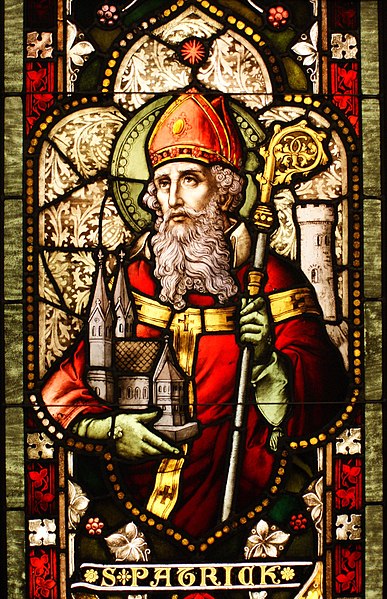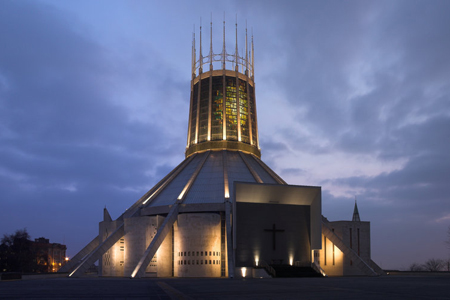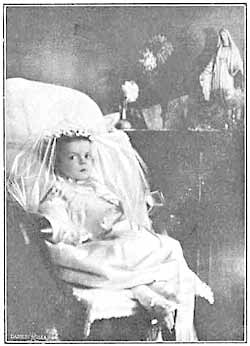
I was visiting a chemist on Saturday, and after I made my purchase I noticed a sign above the dispensary: "Emergency Contraception Available (Morning After Pill)". I was kicking myself, if I had noticed this I would have gone elsewhere, but as I was dealing with the remorse I realised that every other chemist in Ireland has this so called "Emergency Contraception".
Musing on all this I realised that I would have to revise one of my recent posts in which I said that abortion was coming to Ireland and that our government is paving the way for it by taking out the chief opponent: the Catholic Church. However, it is here already: every chemist shop in the country is an abortion clinic as the emergency contraceptive pill actually kills the newly conceived baby.
I know, members of the pro-life movement will remind me, there was a campaign against the legalisation of the pill at the time. And at that time, as far as I am aware, and I am open to be corrected on this, there was not a whimper raised at official Church level. The usual suspects objected, the marvellous David Quinn among them, but there was no campaign, no nation-wide information drive at every church, no sermons. Pastor Niemoller's poem comes to mind.
I suppose things like these have convinced our anti-Catholic public figures that the Church is useless here in Ireland - it will remain silent when attacked, and so can be taken out at will. With the scandals, the Church has no credibility, and so can be beaten into submission, with not a whimper of objection. True, the Cardinal objected to the closing of the Irish embassy to the Holy See, but that was all. That can be ignored.
All of this contrasts with the witness of the Church in Poland, the Philippines, Sudan, East Timor and other places, where, persecuted as it was, and dominated by the stronger forces, she raised her voice and would not be silent. The Church's role in bringing down the Iron Curtain, while not acknowledged by many historians, was significant. Is it not now time for the Church here in Ireland to start getting up from the crash position, come out of the trenches and rabbit holes and start to create a place for herself in Irish society again? Yes, she is a pariah, but pariahs still have a voice and can use whatever resources they have to try and re-establish themselves.
At the moment I am reading a biography of Blessed Anna-Maria Taigi, the great wife, mother and mystic of early 19th century Rome. The biography is the Tan one and is okay, but I would prefer one in which she is put in her historical context a bit more because she lived in fascinating times. Rome was a subject city, the Pope, while ruler of the Papal States, had been pushed out by Napoleon and the King of Naples. Actually she lived at the time the opera Tosca is set (for all you opera lovers? I love that opera! My dream, when training as an opera singer, was to sing the role of Scarpia, but it was not to be. I got as far as Mozart's Figaro, but then the Lord grew impatient!).
Napoleon had ravaged Rome, extending the French Revolution to the Papal States. The Pope, Pius VI was arrested and died in prison. In Vienna a successor was elected, the now Servant of God, Pope Pius VII. This poor pontiff was also a prisoner of Napoleon, dragged across Europe to satisfy the dictator's demands, he was even forced to preside over Napoleon's coronation. The Church was at a very low ebb, and yet it was the sight of the Pope, a captive of the Corsican, which turned the hearts of Europeans. It was when the Church was at her weakest that she was actually strongest (someone said something about that before, I believe). And in the midst of a city, Papacy and Church in turmoil, a holy woman, a simple wife and mother, was sent as a prophet to console and yes, at times, to warn.
We are in similar times. Okay none of our enemies today are like Napoleon, but they are dangerous enough. They do not wage wars like the Corsican general, nor crown themselves emperors, but under the illusion of democracy, equality and secular righteousness, they form kingdoms for themselves, rule peoples and seek to destroy their enemies. As always the Catholic Church is seen as the first enemy to be destroyed because she more than other other religion, has always stood up to those who undermine humanity, morality and faith.
Often the Church does so labouring under the wickedness and hypocrisy of some of her members, and even some of her leaders, but yet, while that is fuel for the enemies' attack, these enemies can never bring themselves to dismiss her. They will say that the Church is irrelevant, but yet act against her in a way which reveals that they know she is not irrelevant, that she is a force to be reckoned it, particularly when they think they have destroyed her.
This is not meant to be a triumphalist post, but rather one to get us thinking and praying. In many places around the world members of the Church are at all time low - that is true of the Church here in Ireland. There are people within the Church who are acting like enemies of the Church, and for all intents and purposes, they are. But now is the time for us to start figuring out: where do we go from here? In a sense we are at an advantage. At long last that grotesque union of the Catholic Church in Ireland and secular government has been dissolved. In that union the Church lost her prophetic voice, she was part of the establishment, cherished respectability, even craved it and at times conferred it. That is gone, thank God, and now we no longer have respectability, now we are actually freer that any other time in Irish history - free to be prophetic. Weak, but in Christ's view of things, strong.
Now we begin again with prayer: that God will guide us. We pray the Holy Father will appoint bishops, when the time comes, that will no longer want to be part of the establishment, that are happy enough to live out in the wilderness with the faithful remnant and will not be silent: indeed we pray for our present bishops that the Lord will help them adjust. We do have some very good bishops who only need encouragement and support. Some may say they are on their last legs - that may be true, but you do not need legs to light a fuse!
Strange musings you may say, having seen a poster advertising quickie abortions, but it is a symbol of how far we have gone. There are battles ahead, and while we might not win them (ye), we must now begin to stand up and fight: we need the virtue of fortitude. That brings me to a wonderful scene from The Lord of the Rings: The Two Towers movie - the siege of Helm's Deep. Though all seemed lost, Theoden King and his armies take their last stand - they will ride out of the fortress to give the women and children time to escape: foolhardy, perhaps - virtuous, yes - fortitude - to do the right thing though you may not survive. We need such courage in the Church in Ireland today - a good dose of humility to go with it of course.
"The sun is rising."











